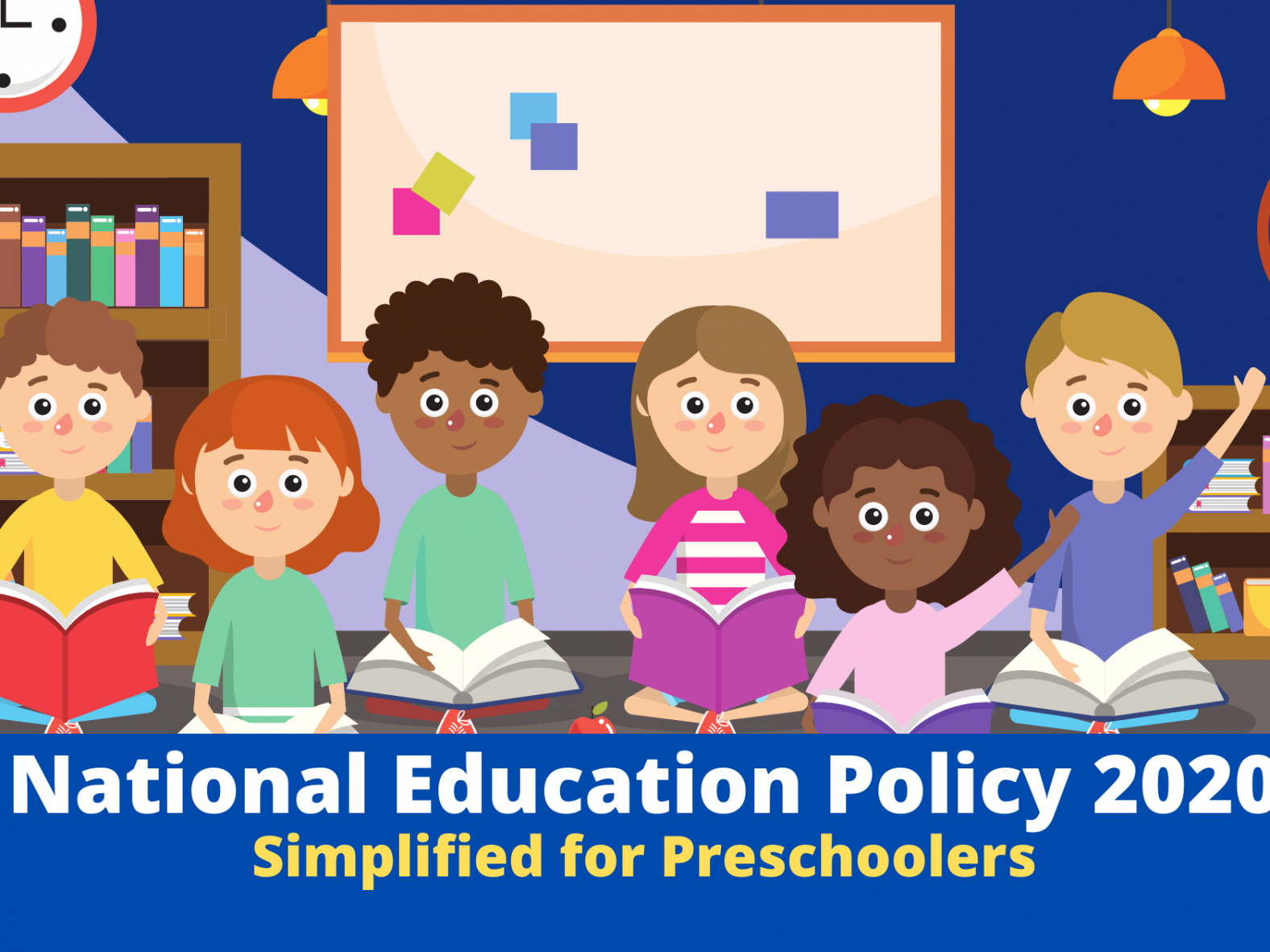This National Education Policy 2020 is the first education policy of the 21st century and aims to address the growing developmental imperatives of India.
This policy envisages that the existent 10+2 structure in school education will be modified with a new pedagogical and curricular restructuring of 5+3+3+4 covering ages 3-18 as shown in the representative figure.
In the new 5+3+3+4 structure, a strong base of Early Childhood Care and Education(ECCE) from age 3 is also included, which aims at promoting better overall learning, development, and well-being.
Curriculum and Pedagogy in Schools: Learning Should be Holistic, Integrated, Enjoyable, and Engaging
1. The Foundational Stage shall consist of five years of flexible, multilevel, play/activity-based learning and the curriculum and pedagogy of ECCE
2. The Preparatory Stage shall comprise three years of education building on the play, discovery, and activity-based pedagogical and curricular style of the Foundational Stage,
3. The Middle Stage shall comprise three years of education, building on the pedagogical and curricular style of the Preparatory Stage,
4. The Secondary Stage shall comprise of four years of multidisciplinary study, building on the subject-oriented pedagogical and curricular style of the Middle Stage, but with greater depth, greater critical thinking, greater attention to life aspirations, and greater flexibility and student choice of subjects.
5. The key thrust of curriculum and pedagogy reform across all stages will be to move the education system towards real understanding and towards learning how to learn-and away from the culture of rote learning as is largely present today.
6. Wherever possible, the medium of instruction until atleast Grade 5, (but preferably till Grade 8 and beyond), will be the home language/mother tongue/local language/regional language.Thereafter, the home/local language shall continue to be taught as a language wherever possible.
7. The highest priority of the education system will be to achieve universal foundational literacy and numeracy in primary school by 2025.
8. To ensure that all students are school ready, an interim 3-month play-based’ school preparation module’ for all Grade 1 students, consisting of activities and workbooks around the learning of alphabets, sounds, words, colours, shapes, and numbers, and involving collaborations with peers and parents, will be developed by NCERT and SCERTs.
9. A concerted national effort will be made to ensure universal access and afford opportunity to all children of the country to obtain quality holistic education–including vocational education-from pre-school to Grade 12.
The NEP has received mixed reactions from Educationists across the country.
It’s a proud moment for our country that after 34 years, our new National Education Policy is released. We may dissect it all we want, but let’s start by congratulating the government and the committee that worked hard on ensuring that vision of millions of Indian educators and policymakers is developed for the larger enhancement of education of our country. Also, an important move is to rename the Ministry of HRD to the Ministry of Education (MoE).
Dr. Swati Popat Vats, President, Early Childhood Association & Association for Primary Education and Research
Welcoming the NEP, she has expressed her concerns on the implementation of the same
1. How much say each state will have in the national curriculum framework for ECCE as it is imperative that a common guideline and goal should be drafted and state governments should not have the power to deviate from these essentials. As it is not fair for young children in different states to get a differing head start in life.
2. Will the ‘Balvatika’ in Anganwadis not follow the foundational age group of 3 to 8 years?
3. How far the Ministries of HRD, Women and Child Development (WCD), Health and Family Welfare (HFW), and Tribal Affairs works together will decide the success of ECE.
4. What will the training of the teachers of Anganwadis comprise of needs to be identified at the earliest, else different states will have different standards and quality of ECE teachers.
5. Mother tongue is a good move but difficult to implement. In cities where multiple language children are in the same class, which language will the teacher teach in?
6. How schools will develop an integrated foundational curricular and pedagogical framework in the “Foundational Stage” and corresponding teacher preparation? Training already existing teachers in this will be the struggle. Also, this needs to be part of ECCE teacher training programs, and other teacher training programs.
7. Also, does it mean that exiting private standalone preschools can now extend to grade 2?
Overall the new education policy is a great vision to change the educational landscape in this country and it vitalises education by ensuring that ECE becomes the starting point of education for all children.
Research based on : National Education Policy 2020 – MHRD
Credits: Swati Popat Vats (Opinion expressed in ScooNews)

